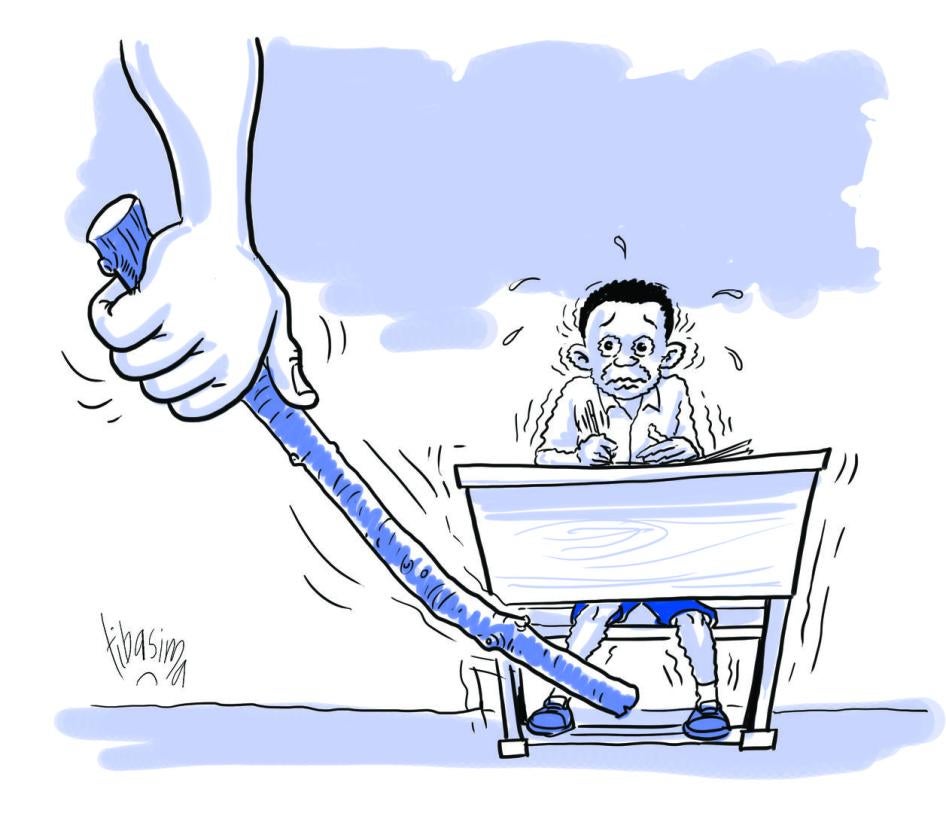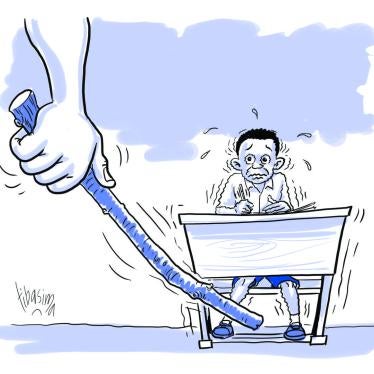A few days ago, a video widely shared online showed a regional commander in southern Tanzania caning boys who were lying on the ground as punishment for burning down their dormitories after their mobile phones were confiscated.
Let’s be clear. Corporal punishment is child abuse. It is brutal, widespread, and state-sanctioned in Tanzania, but the government gives mixed signals about tackling the problem. In August, Tanzania banned teachers of lower grades from entering classrooms with canes. In recent years, Human Rights Watch has spoken to many children who are caned, punched, or slapped by teachers.
Although trainee teachers who were filmed caning children in Mbeya in 2016 were suspended and demoted, President Magufuli praised the commander for caning students in the latest incident. He defended caning, saying it has been used as a form of discipline for many years.
Studies show violence has long-term negative effects on children’s development. Children who are beaten, caned, assaulted, or insulted are more likely to develop learning problems, and participate less in class.
It’s time to imagine a better future for Tanzania’s children, free of violence, instead of glorifying this retrogressive punishment without acknowledging harmful practices that have no place in today’s society. It’s unacceptable for President Magufuli to justify caning in schools today just because it was acceptable in the past. And the commander who administered the beatings has both failed to set ethical standards as a leader and has set a dangerous precedent.
Tanzania should make necessary reforms to ensure children’s safety in schools. It’s time for President Magufuli join the dozens of African countries who have outlawed corporal punishment in schools.
Quality education requires good learning environments, where teachers can manage different behavioral problems, understand their students, and manage classrooms without resorting to violence. These can be accomplished if the government guarantees safety in schools and provides teachers with training programs that equip them with violence-free problem-solving skills in schools.
If Tanzania is to address the inaccessibility of quality education to millions of children who are still out of school around the country, it will have to find ways to make the environments in schools safe and enriching.









